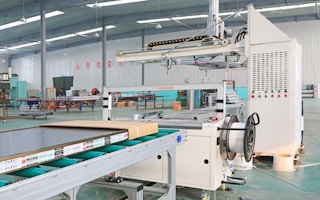United States President Donald Trump’s newly announced import tax on solar panels will do little to hamper the fortunes of Asia’s panel manufacturers, but will damage America’s own solar sector and cost many thousands of jobs, experts have said.
To continue reading, subscribe to Eco‑Business.
There's something for everyone. We offer a range of subscription plans.
- Access our stories and receive our Insights Weekly newsletter with the free EB Member plan.
- Unlock unlimited access to our content and archive with EB Circle.
- Publish your content with EB Premium.
A 30 per cent tax on foreign-made solar equipment was announced by the Trump administration on Monday, a move seen as a targeted strike against the solar industry and manufacturers in China, the world’s largest maker of photovoltaic technology.
The US—the world’s second largest market for solar installations—sources 80 per cent of the panels it deploys from overseas, mainly from bitter geopolitical rival China.
While the tariff will likely slow imports from China and other Asian solar manufacturing hubs such as Taiwan, only about 10 out of 100 gigawatts of solar energy installed globally in 2017 was in the US, noted Professor Armin Aberle, chief executive officer of the Solar Energy Research Institute of Singapore (SERIS) at the National University of Singapore.
“For Asian manufacturers, the impact will not be huge,” he told Eco-Business. Even if Asian panels are 30 per cent more expensive they will still be cheaper than American-made ones, so trade won’t slow by much, he predicted.
The European Union, a huge solar energy market, already has in place an import levy on foreign-made solar panels that is higher than America’s, he added.
Some Asian countries such as Singapore may actually benefit from the news, Aberle noted. The city-state is home to 1.5 per cent of global panel production—and, as a special trading partner to the US, is likely exempt from the tax. Singapore’s REC Solar operates one of the world’s largest solar factories.
“
He [Trump] may protect a few thousand manufacturing jobs, but will kill off tens of thousands of jobs in the downstream sector of the solar industry—it’s a stupid move.
Professor Armin Aberle, CEO, Solar Energy Research Institute of Singapore
How the tariff will hurt America
The country that will be hurt most by the tariff is the US itself, Aberle commented.
America’s solar manufacturing sector is relatively small, as the country was late to develop an industry for crystalline silicon, the main semiconducting material used to make solar cells. The sector for installing panels is much larger.
“The deployment rate of solar will reduce significantly in the US. He [Trump] may protect a few thousand manufacturing jobs, but will kill off tens of thousands of jobs in the downstream sector of the solar industry—it’s a stupid move,” Aberle said.
The tariff will hit the profitability of America’s solar plants, and those that are struggling will likely go under, and solar-derived electricity prices will go up, Aberle added.
The policy is also bad news for the climate, as America’s carbon emissions will now be reduced at a slower rate, he said.
The tariff is the latest measure from the Trump administration to hamstring the global movement to fight climate change by boosting the renewable energy sector.
Trump announced in June last year that the US would back out of the Paris climate agreement, and in October rolled back regulations on polluting coal power plant emissions introduced by his predecessor, Barack Obama.
However, Robin Pho, chief executive officer of Right People Renewable Energy, a Singapore-based renewable energy firm, observed that Trump’s tax may do more to raise awareness of the importance of solar in the public eye.
“Sometimes people make decisions like this [the solar tax] out of fear. It’s like the response to Uber entering the transport sector,” he said, referring to the backlash against the ride-sharing app from some traditional taxi firms and governments.
“But as with solar energy, Uber has driven prices down and shaken up an industry that was in need of change,” he said.










